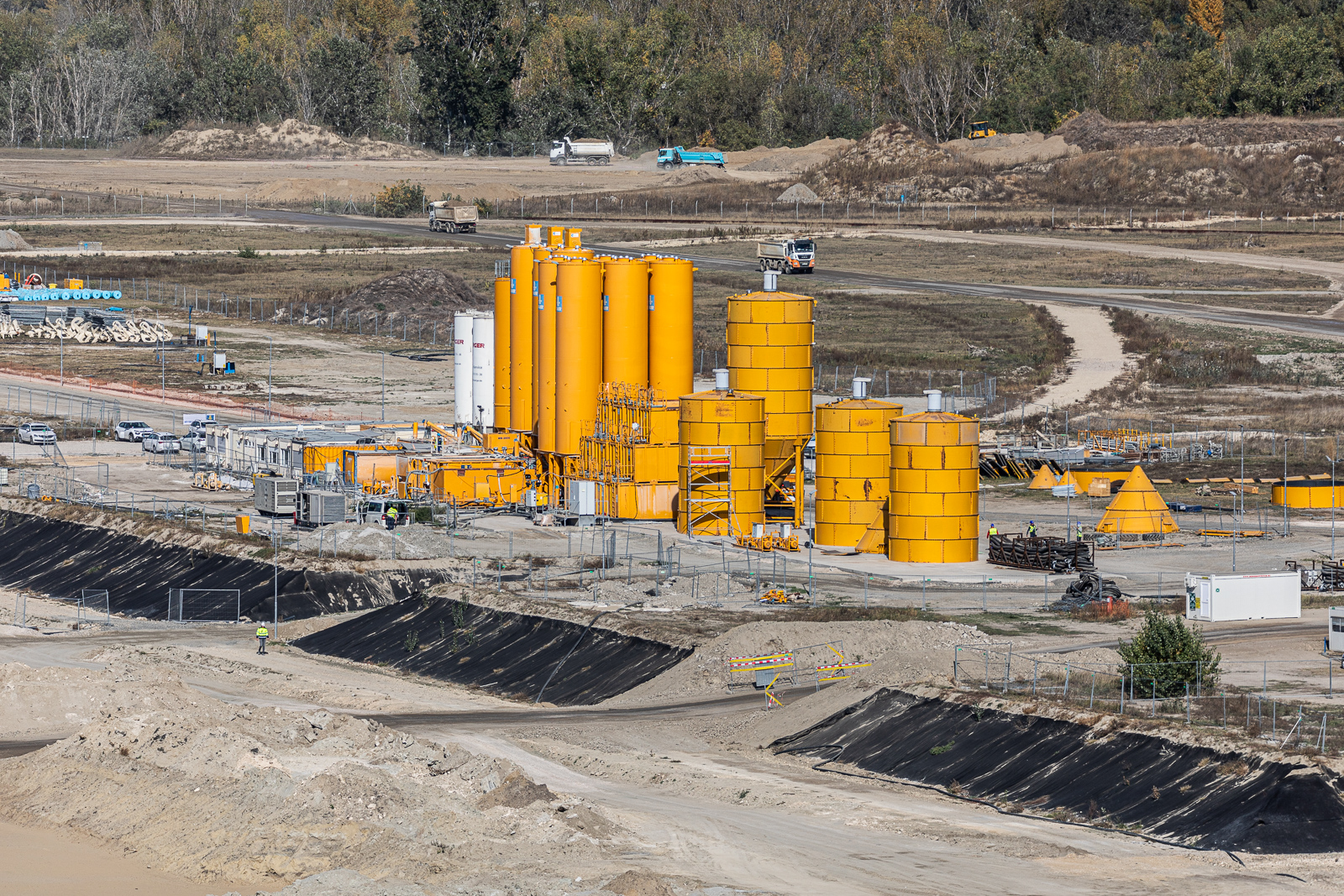 Workers at the Paks II NPP under construction in Hungary have begun to strengthen the soil in pits under Paks units 5&6 (also known as Paks II units 1&2), Minister of Foreign Affairs & Trade Péter Szijjártó told a hearing of the Hungarian National Assembly’s Committee on Sustainable Development. "About 1.7m cubic metres of land were removed from the boiler houses to enable soil strengthening , which is considered a key stage in preparing for the start of plant construction to ensure stability and mitigate any possible seismic effects. The Hungarian regulator has issued all the necessary permits for the work.
Workers at the Paks II NPP under construction in Hungary have begun to strengthen the soil in pits under Paks units 5&6 (also known as Paks II units 1&2), Minister of Foreign Affairs & Trade Péter Szijjártó told a hearing of the Hungarian National Assembly’s Committee on Sustainable Development. "About 1.7m cubic metres of land were removed from the boiler houses to enable soil strengthening , which is considered a key stage in preparing for the start of plant construction to ensure stability and mitigate any possible seismic effects. The Hungarian regulator has issued all the necessary permits for the work.
The Paks II project was launched in 2014 by an inter-governmental agreement between Hungary and Russia for two VVER-1200 reactors (units 5&6) to be supplied by Rosatom. The contract was supported by a Russian state loan to finance the majority of the project. The Hungarian Atomic Energy Authority issued the licence for the units in August 2022. The following December, the Hungarian parliament approved the extension of the life of the four existing VVER-440 power units at the Paks NPP for another 20 years. The current life of the station's nuclear reactors would have ended in 2032-2037, and now it is assumed that they will work until at least 2052-2057. Paks currently provides half of all generated and one third of the consumed electricity in Hungary.
Szijjártó also noted that delivery to Paks from Russia of the first major component of the station’s equipment – the melt trap – is expected in spring 2024. In addition, the production of the reactor vessel and other equipment of the so-called nuclear island, a complex of buildings and structures at the nuclear power plant, is underway at Rosatom enterprises.
The expansion of the Paks plant is being carried out under the strictest safety and environmental protection standards, and the two new units will have a double containment that can withstand the harshest external impacts, Szijjártó noted. He added that in addition to 94 Hungarian companies, American, French, German, Swedish, and Austrian companies had also been subcontracted for the current construction work.
He pointed out that electricity would play an increasing role in future, with the average electricity consumption of EU member states growing by 50% by 2030. He said producing electricity cheaply, safely, sustainably, and in large quantities in a way that would ensure independence in face of price fluctuations on the international energy market was a complex question. Only nuclear energy can meet these four criteria.
He stressed that 65% of electricity production in Hungary is now carbon neutral, thanks to nuclear energy. The Paks units are operating at 90-91% capacity, fuel supply is continuous, and weather-dependent generation can only meet a minimal part of demand during peak consumption, Szijjártó said.
“If our nuclear and solar investment continues at the same pace, I believe that by the beginning of the next decade we will be able to say that we are almost 100% carbon neutral and self-sufficient in providing electricity to the population and the economy of the country,” he concluded.
Image: The Paks expansion project in November (courtesy of MTI)



